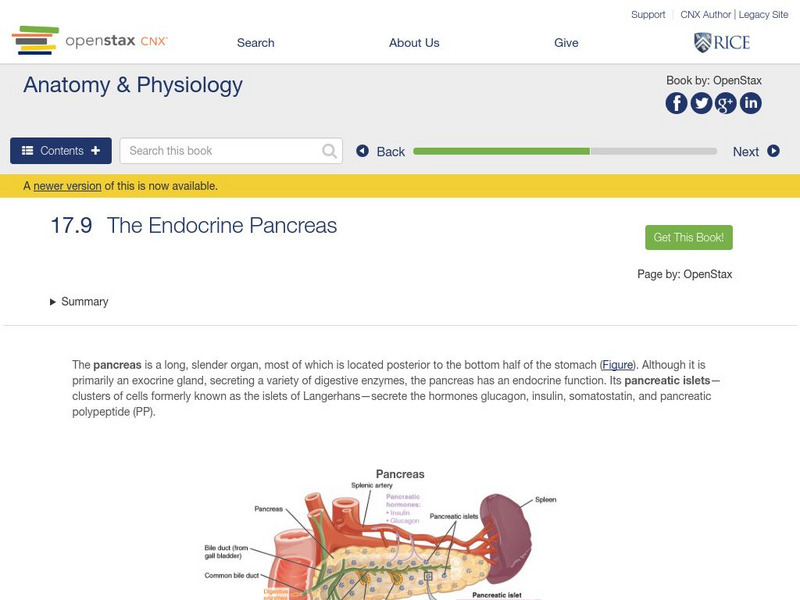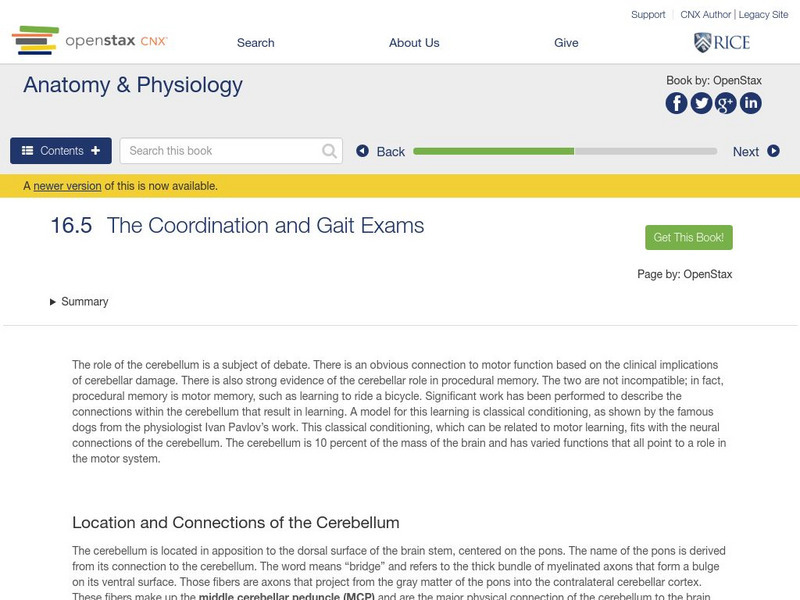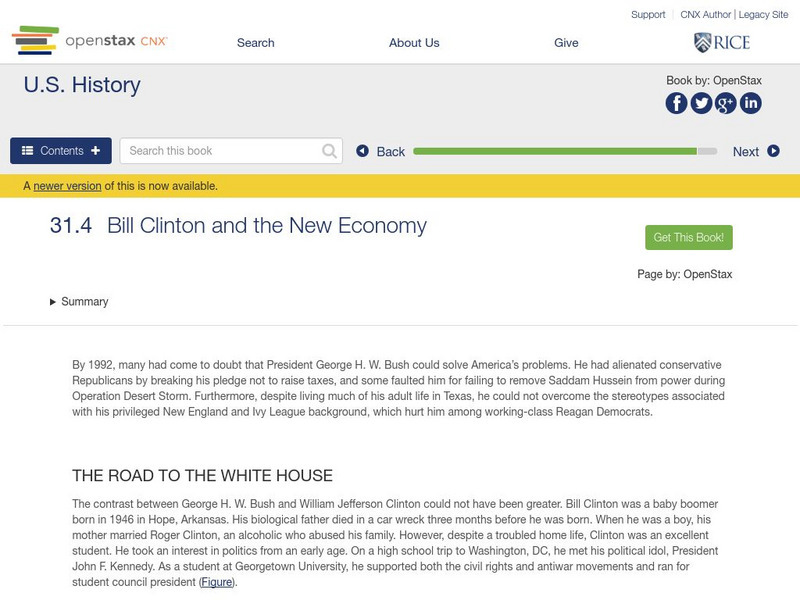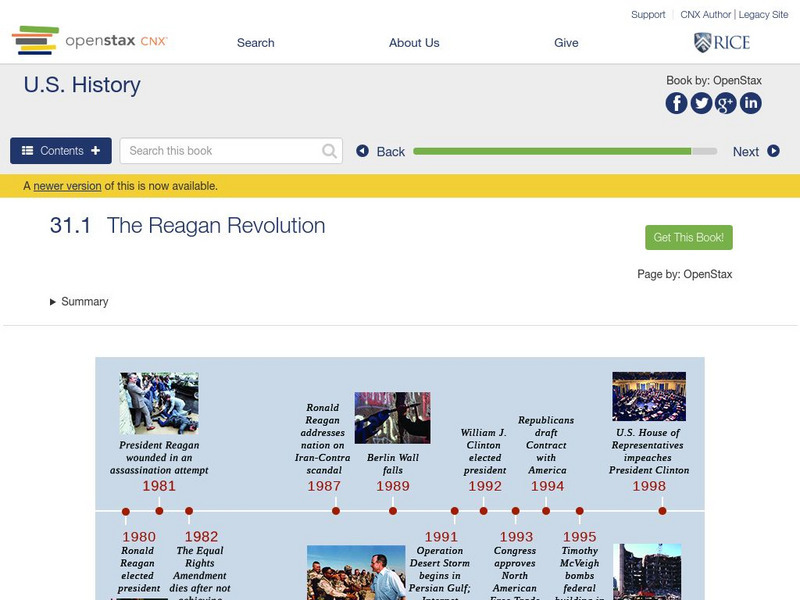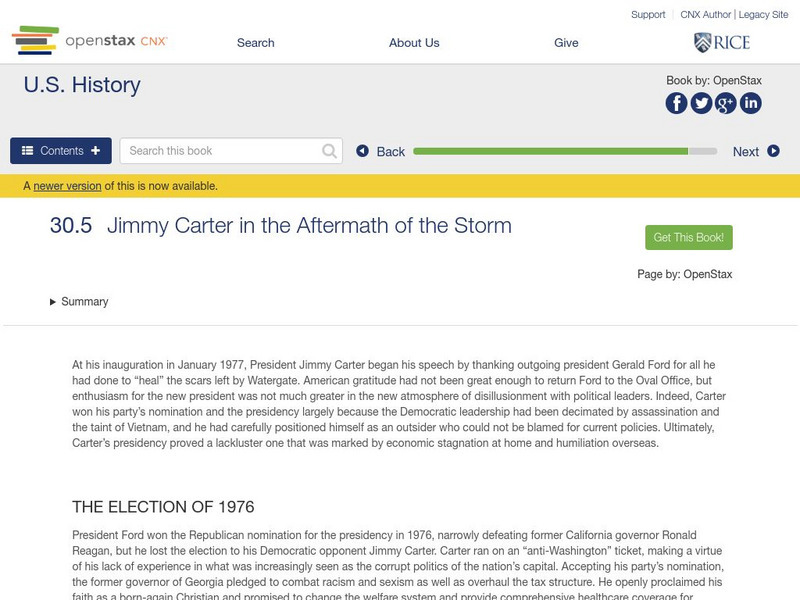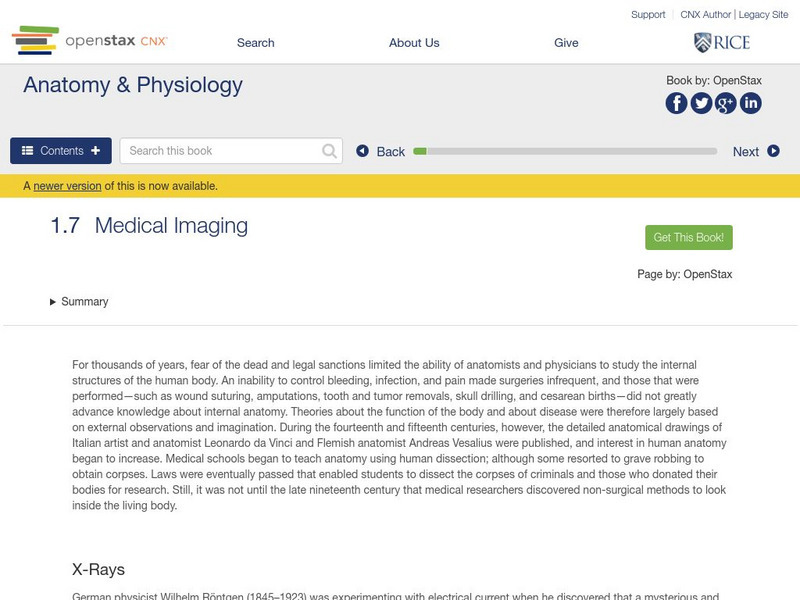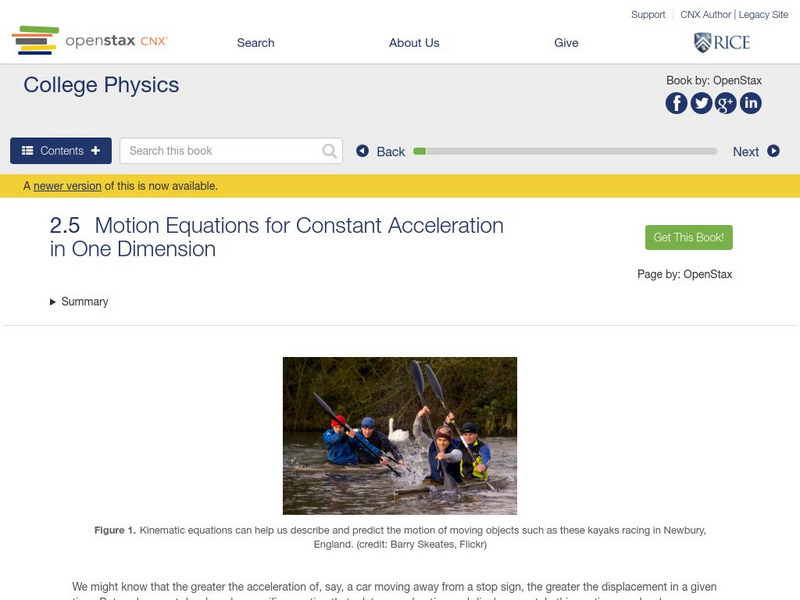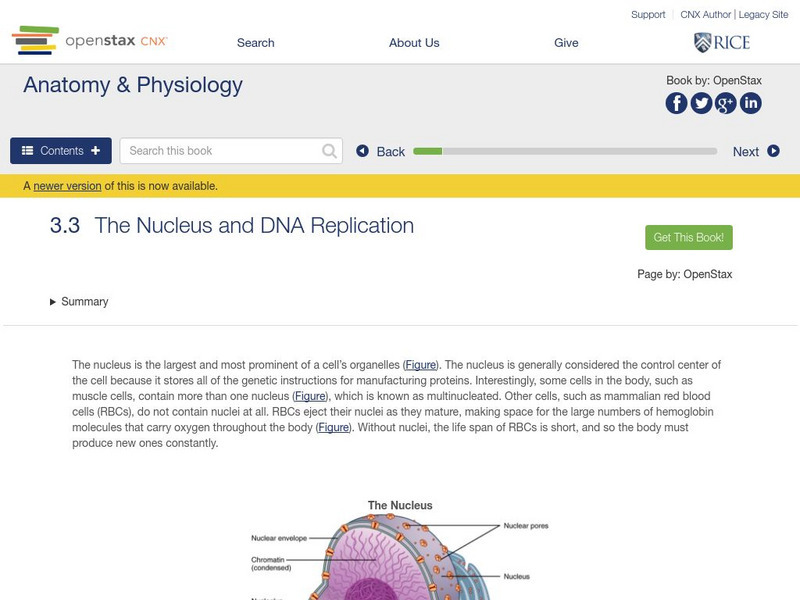OpenStax
Open Stax: Anatomy & Physiology: The Endocrine Pancreas
Students learn about the location and structure of the pancreas, and the morphology and function of the pancreatic islets.
OpenStax
Open Stax: Anatomy & Physiology: The Cranial Nerve Exam
Students learn about the functional grouping of cranial nerves and match the regions of the forebrain and brain stem that are connected to each cranial nerve.
OpenStax
Open Stax: Anatomy & Physiology: The Coordination and Gait Exams
Students learn about the relationship between the location of the cerebellum and its function in movement in order to understand the processes of coordination and gait exams.
OpenStax
Open Stax: Anatomy & Physiology: The Adrenal Glands
Students learn about the location and structure of the adrenal glands, and find out the physiological effects of the hormones produced there.
OpenStax
Open Stax: Anatomy & Physiology: Overview of the Neurological Exam
Find out about the major sections of the neurological exam and the connection between location and function in the nervous system. Also learn the benefit of a rapid assessment for neurological function in a clinical setting.
OpenStax
Open Stax: Anatomy & Physiology: Organs With Secondary Endocrine Functions
Students learn about the organs with a secondary endocrine function, the hormones they produce, and the effects on human physiology.
OpenStax
Open Stax: Anatomy & Physiology: Leukocytes and Platelets
This study of white blood cells includes informational reading material, illustrated diagrams, vocabulary, and self-checking review and application questions.
OpenStax
Open Stax: Anatomy & Physiology: Hormones
Students will find out about the three major classes of hormones on the basis of chemical structure, and learn the role they play in human physiology.
OpenStax
Open Stax: Anatomy & Physiology: The Parathyroid Glands
Students learn about the location and structure of the parathyroid glands and find out what happens to the body when these glands fail to function.
OpenStax
Open Stax: Challenges of the Twenty First Century: The Domestic Mission
Overview of the domestic issues facing the Bush administration during the first decade of the 21st Century, including education, recession, war, and Hurricane Katrina. Site provides questions for discussion, glossary and links to primary...
OpenStax
Open Stax: Challenges of the Twenty First Century: The War on Terror
Thorough overview of the War on Terror beginning with 9/11, discusses U.S. response, war in Afghanistan and Iraq, and Homeland Security. With photos, map, questions for review and links to primary source material.
OpenStax
Open Stax: From Cold War to Culture Wars 1980 2000: Bill Clinton and New Economy
Page discusses the culture, economy and political atmosphere of the Bill Clinton era. Site includes questions for review and critical thinking, glossary and link to primary resources.
OpenStax
Open Stax: Cold War to Culture Wars, 1980 2000: Political and Cultural Fusions
This section outlines political and cultural events of the 1980s, including the ERA movement, government failure to act on HIV/AIDS, the war on drugs and the conservative Christian reach. Questions for discussion and critical thinking,...
OpenStax
Open Stax: From Cold War to Culture Wars, 1980 2000: A New World Order
Page featuring information on a changing order both at home and abroad during the 1980s. Several links to primary source material, glossary and questions for student discussion.
OpenStax
Open Stax: From Cold War to Culture Wars, 1980 2000: The Reagan Revolution
Article discusses the details and events of Ronald Reagan's presidency. Includes timeline, questions for discussion, link to information about Yuppie culture, and link to Ronald Reagan Presidential Library for access to speeches and...
OpenStax
Open Stax: Political Storms 1968 1980: Jimmy Carter in the Aftermath of the Storm
Overview of the Carter years details events from the 1976 election of Jimmy Carter including the Camp David Peace Accord, the Iranian hostage crisis, and a crippling domestic economy. With questions for critical thinking and discussion.
OpenStax
Open Stax: Political Storms 1968 1980: Vietnam: The Downward Spiral
E-book page on the final era of the Vietnam War in which the Pentagon Papers were released, protest and conflict over the war increased at home and Nixon's Vietnamization began. Questions for discussion, glossary and link to primary...
OpenStax
Open Stax: Political Storms 1968 1980: Coming Apart, Coming Together
Page discusses the election of 1968 in which Richard Nixon garnered the votes of white blue-collar workers and moderate southerners to become president. Questions for discussion, glossary and links to primary source material.
OpenStax
Open Stax: 1775 1783: Britain's Law and Order Strategy and Its Consequences
This section of a chapter on "America's War for Independence" deals with Great Britain's response to the destruction of a British shipment of tea in Boston Harbor in 1773 and how it set the stage for the Revolution.
OpenStax
Open Stax: Anatomy & Physiology: Medical Imaging
Learn here all about medical imaging, non-surgical methods to look inside the living human body.
OpenStax
Open Stax: Physics: Molecular Transport Phenomena
Learn about diffusion, osmosis, dialysis, and active transport in this college textbook. Section also includes how to calculate the rate of diffusion. Section includes problems and questions for the students to answer to ensure...
OpenStax
Open Stax: Physics: Motion Equations for Constant Acceleration in One Dimension
In this interactive module, students will calculate displacement of an object that is not accelerating, given initial position and velocity. They will also calculate final velocity of an accelerating object, given initial velocity,...
OpenStax
Open Stax: Organic Compounds Essential to Human Functioning
Learn here about organic compounds, groups of carbon atoms covalently bonded to hydrogen, usually oxygen, and often other elements as well, and how they are essential to human functioning.
OpenStax
Open Stax: Nucleus and Dna Replication
This site explains the nucleus, the control center of a cell, and DNA replication.


